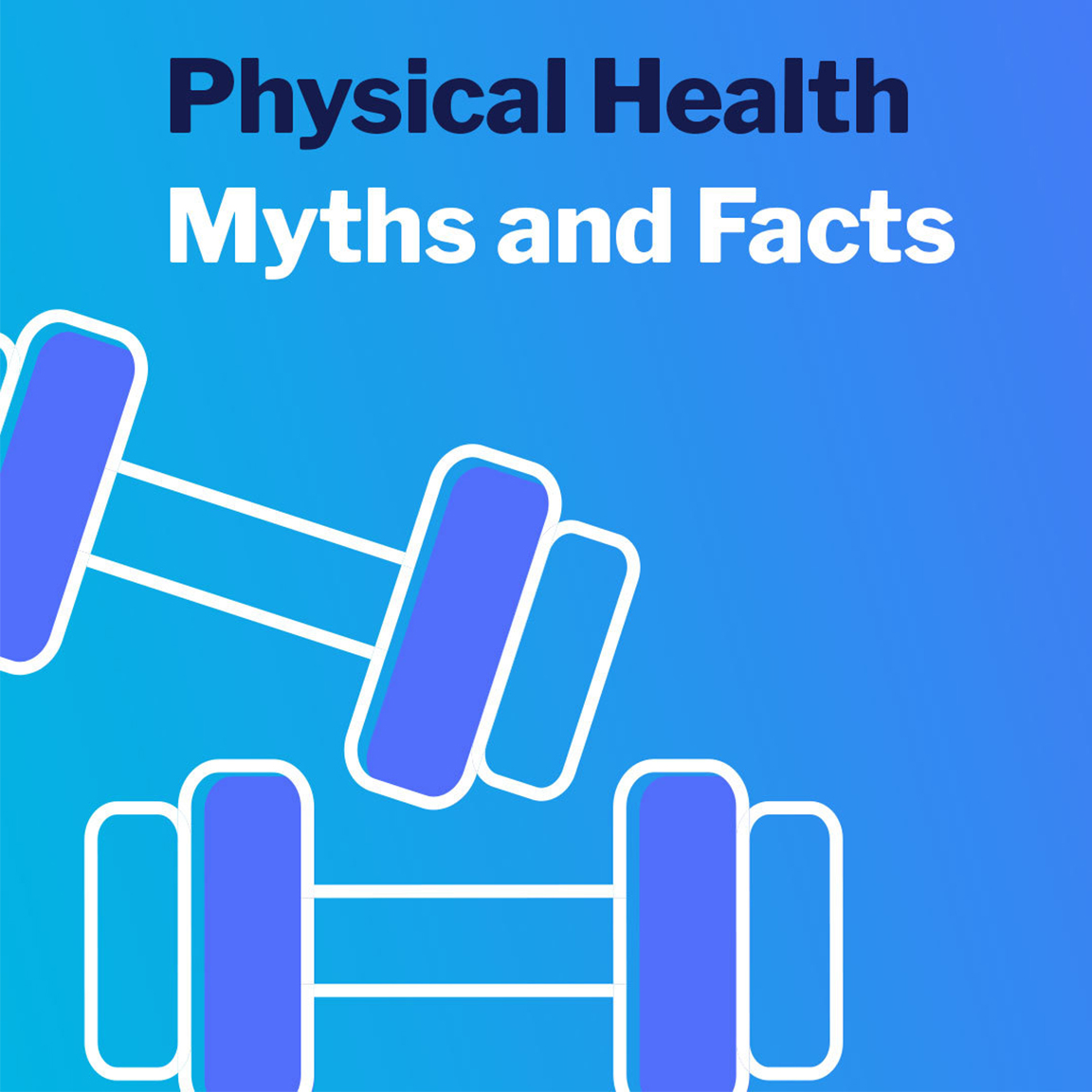Physical Health Myths and Facts
Exercise can help make you stronger, prevent bone loss, improve balance and coordination, lift your mood, boost your memory, and ease the symptoms of many chronic conditions.
Here are some common myths that stop older people from exercising -- along with some expert advice to get you started working out.
Exercise Myth: Trying to exercise and get healthy is pointless -- decline in old age is inevitable.
A lot of the symptoms that we associate with old age -- such as weakness and loss of balance -- are actually symptoms of inactivity, not age.
Exercise improves more than your physical health. It can also boost memory and help prevent dementia. And it can help you maintain your independence and your way of life. If you stay strong and agile as you age, you'll be more able to keep doing the things you enjoy and less likely to need help.
Exercise Myth: Exercise isn't safe for someone my age -- I don't want to fall and break a hip.
Exercise builds strength, balance, and agility. Exercises like tai chi may be especially helpful in improving balance. Worried about osteoporosis and weak bones? One of the best ways to strengthen them is with regular exercise.
Exercise Myth: Since I'm older, I need to check with my doctor before I exercise.
If you have a medical condition or any unexplained symptoms or you haven't had a physical in a long time, check with your doctor before you start exercising. Otherwise, go ahead. Just go slowly and don't overdo it.
Exercise Myth: I'm sick, so I shouldn't exercise.
On the contrary, if you have a chronic health problem -- such as arthritis, diabetes, or heart disease -- exercise is almost certainly a good idea. Check with a doctor first, but exercise will probably help. "Exercise is almost like a silver bullet for lots of health problems,".
Exercise Myth: I'm afraid I might have a heart attack.
We've all heard about people who had heart attacks while exercising. It can happen. However, the many health benefits of exercise far exceed the small risk.
Exercise Myth: I never really exercised before -- it's too late to make a difference in my health.
Studies have found that even in people in their nineties living in nursing homes, starting an exercise routine can boost muscle strength. Other research shows that starting exercise late in life can still cut the risk of health problems -- such as diabetes --and improve symptoms.
Exercise Myth: Exercise will hurt my joints.
If you're in chronic pain from arthritis, exercising may seem too painful. Here's a counterintuitive fact: studies show that exercising helps with arthritis pain. One study of people over age 60 with knee arthritis found that those who exercised more had less pain and better joint function.
Exercise Myth: I don't have time.
This is a myth that's common in all age groups. Experts recommend a minimum of 150 minutes of aerobic exercise a week. That might sound like a lot. Actually, it's only a little over 20 minutes a day. What's more, you don't have to do it all in one chunk. You can split it up. For instance, take a 10-minute walk in the morning and pedal on a stationary bike for 15 minutes in the evening -- you're done.
Exercise Myth: I'm too weak to start exercising.
Maybe you just recovered from an illness or surgery and are feeling too weak even to walk around the block. Maybe you only get out of the chair each day to go to the bathroom. If so, start there. Decide today to get in and out of your chair 10 times. As you do it more, your strength will increase and you can set higher goals.
Exercise Myth: I'm too weak to start exercising.
If you’re in a wheelchair, you can use your arms to get an aerobic workout and build strength. Even people who are bedridden can find ways to exercise, she says. Talk to a doctor or a physical therapist about ways you can modify exercises to work around your disability.
Exercise Myth: I can't afford it -- I don't have the budget to join a gym or buy equipment.
Gym memberships and home treadmills can be expensive. Still, that's no reason to skip exercising. You can exercise for free. Walking doesn't cost anything. Look into free demonstration classes at your local senior center. If you want to lift weights at home, use soup cans or milk jugs filled with sand. Use your dining room chair for exercises that improve balance and flexibility.
Exercise Myth: Gyms are for young people.
Look to see if gyms in your area have offerings for seniors or people new to exercise. If you're retired, try going in the middle of the day, so you can avoid the before and after-work rush.
Exercise Myth: Exercise is boring.
If exercise is boring, you're not doing it right. Exercise doesn't even have to feel like exercise. Remember that any physical activity counts. Whether it's catching up with a friend while you walk the mall, or taking a dance class, or chasing your grandchildren, or bowling, or raking, or gardening, or volunteering at your local school system or park, it's physical activity.

Leave A Reply